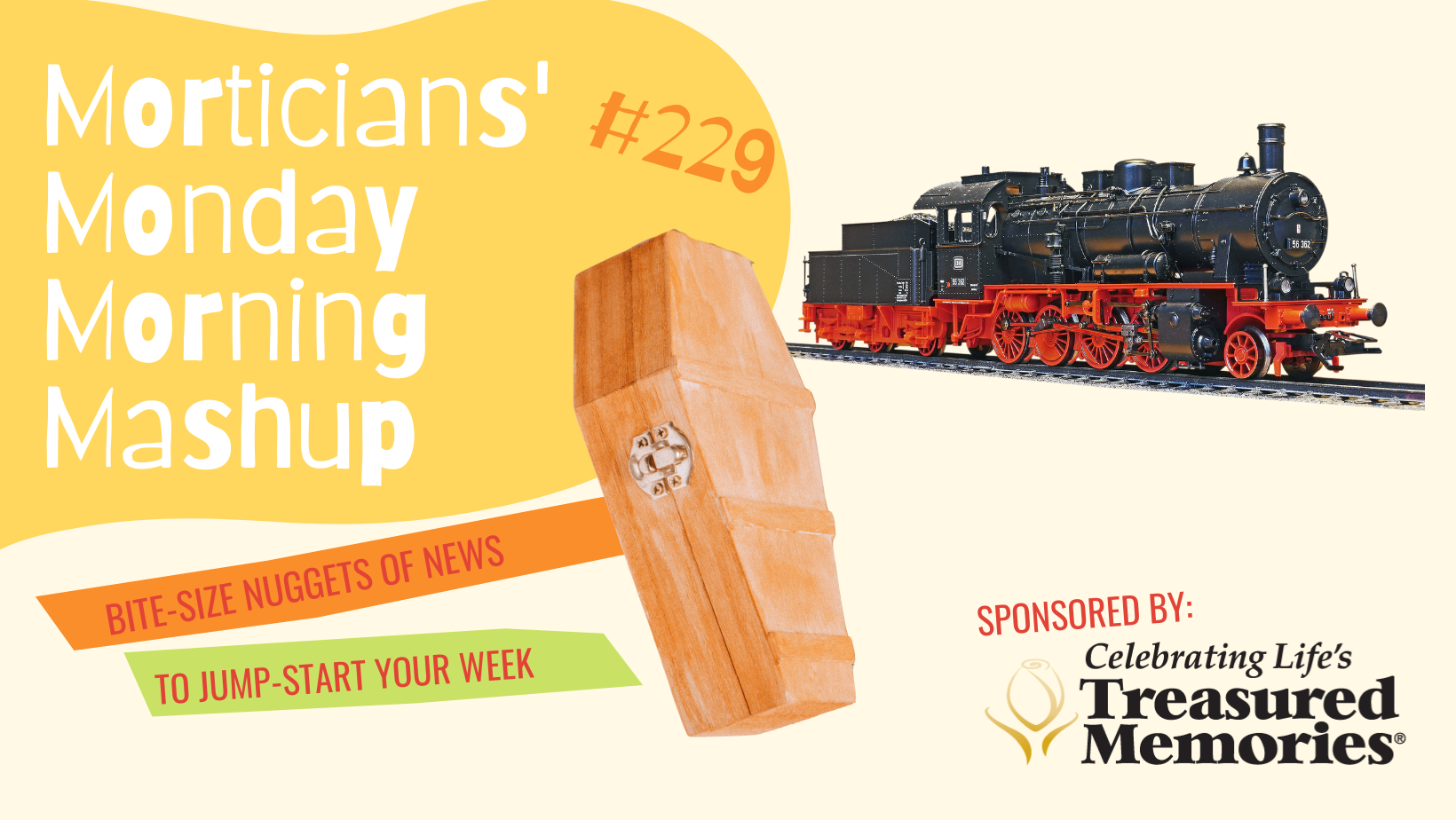NFDA Calls Out Money Magazine, Funeral Directors Don’t Prey on Grieving Families
The November 2012 issue of Money magazine featured an article, “The High Cost of Saying Goodbye,” which was the first in a three-part series of articles about end-of-life issues (parts two and three will appear in the December issue).
The article, which you can find online, repeats many of the false claims that other journalists, dating all the way back to Jessica Mitford in the 1960s, have made: namely, that funeral directors prey on grieving families and attempt to sell expensive and unnecessary merchandise.
While the article provides some helpful information about how consumers can make informed choices when planning a funeral, the unfair portrait of funeral directors ultimately does readers a disservice.
NFDA stands prepared to respond to stories, like the one that appeared in Money magazine, that unfairly malign funeral service. To that end, NFDA President Bob Rosson sent a letter of response to Money Managing Editor Craig Matters and the authors of the article, Lisa Gibbs and Ismat Mangla.
Below is the respond sent to Money Magazine by NFDA President Bob Rosson:
Dear Mr. Matters:
My name is Bob Rosson. I have been a funeral director for nearly 30 years and am the co-manager of Waller Funeral Home in Oxford, Miss. I am also honored to be serving as the president of the National Funeral Directors Association (NFDA).
I’ve long admired Money magazine for its well-written and informative articles, and that is why I regret having to write to express my disappointment with the article, “The High Cost of Saying Goodbye,” which appeared in the November 2012 issue.
At some point in the near or distant future, many of your readers will face the difficult task of planning a funeral or memorial service for a loved one. The article does a great disservice to your readers because it paints funeral service with a broad brush and doesn’t provide the information your readers will need when a loved one dies and are in need of a funeral director. The helpful information provided about making educated choices is distorted by a grim picture of funeral directors like me and my fellow NFDA members.
Your article shines a light on a few of the negative situations that have occurred – something to which no profession or industry is immune. Research indicates that an overwhelming majority of consumers not only trust the funeral directors who have served them, but find value in the services they provide. Results of the April 2010 “Study of American Attitudes Toward Ritualization and Memorialization,” a consumer survey conducted by Harris Interactive on behalf of the Funeral and Memorialization Information Council showed:
- 95% of survey respondents strongly or somewhat agreed that the funeral director took special care to make the ceremony and arrangements reflect the wishes of the family.
- 89% strongly or somewhat agreed that people in funeral service are professional and competent.
- 89% strongly or somewhat agreed that funeral directors have the expertise to recommend the right products and services.
- 93% strongly or somewhat agreed that funeral directors are important in making funeral arrangements.
- 92% strongly or somewhat agreed that the funeral service they attended had meaning and value and reflected the life of their loved one.
- 88% strongly or somewhat agreed that the service they attended helped them remember their loved one and say goodbye.
These survey results contrast the portrayal of funeral directors in your publication’s article.
The article lacks serious consideration about why we have funerals. Dr. Thomas G. Long, Bandy Professor of Preaching at the Candler School of Theology at Emory University in Atlanta, put it best:
“Rituals of death rest on the basic need, recognized by all societies, to remove the bodies of the dead from among the living … But no healthy society has ever treated this as a perfunctory task, a matter of mere disposal … When we lift the heavy weight of the coffin and carry the dead over the tile floor of the crematory or across the muddy cemetery to the open grave, we bear public witness that this was a person with a whole and embodied life, one that, even in its ambiguity and brokenness mattered and had substance. To carry the dead all the way to the place of farewell also acknowledges the reality that they are leaving us now, that they eventually will depart even from our frail communal memory as they travel on to whatever lies beyond.” (“Chronicle of a Death We Can’t Accept,” New York Times, November 1, 2009)
Additionally, the article fails to consider the economic impact funeral homes have on a community. The vast majority of funeral homes in the United States are privately owned by families or individuals; 98% of NFDA member funeral homes are privately owned. We provide jobs; NFDA member funeral homes, on average, employ three full-time and three part-time employees. Yet, our impact on communities we serve is not limited to job creation, nor is the care we provide limited to what happens within the walls of our funeral homes; it extends far beyond.
Funeral home owners and managers, like me, are deeply involved in and supportive of the communities they serve. We volunteer with local non-profit and community organizations, we sponsor little league teams, we’re on the planning committee for the Memorial Day parade, we organize efforts to collect comfort items for our troops serving overseas. Something we almost never publicize is the way in which we care for parents who have experienced the death of an infant or child and families with other special circumstances; we often donate our services and provide items like a casket or urn at-cost; some funeral directors do not charge anything at all.
We agree that consumers must educate themselves about options available to them when planning a funeral, be it in advance or at a time of need, and encourage them to do so. Every funeral home has unique facilities, services, products and pricing. Information is often readily available on the internet and most funeral directors welcome questions from consumers at any time before, during or after the planning process. Consumers should take the search for a funeral home as seriously as they would the search for any other professional service provider to ensure they are working with the one that can best meet their family’s needs. Looking to organizations like NFDA, whose members agree to an enforceable Code of Professional Conduct, can be a good place to start.
Planning a funeral or memorial service is not easy, especially when the pain of a loss is fresh in someone’s mind and heart. The article, “The High Cost of Saying Goodbye,” does little to guide a family in the decisions it must make. In fact, it induces fear and makes the process of planning a funeral or memorial service seem more intimidating.
I invite you or the authors of this article to visit me at my funeral home. I would be proud to show you the ways in which me and my staff are serving families and our community in accordance with the highest ethical and professional standards.
I’d also be happy to discuss any aspect of our profession with you at any time. You are welcome to call me at 662-234-7971 or NFDA’s Public Relations Manager Jessica Koth at 262-814-1536.
Best regards,
Robert T. “Bob” Rosson, CFSP, CPC
CC: Lisa Gibbs, Ismat Mangla




